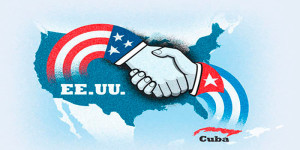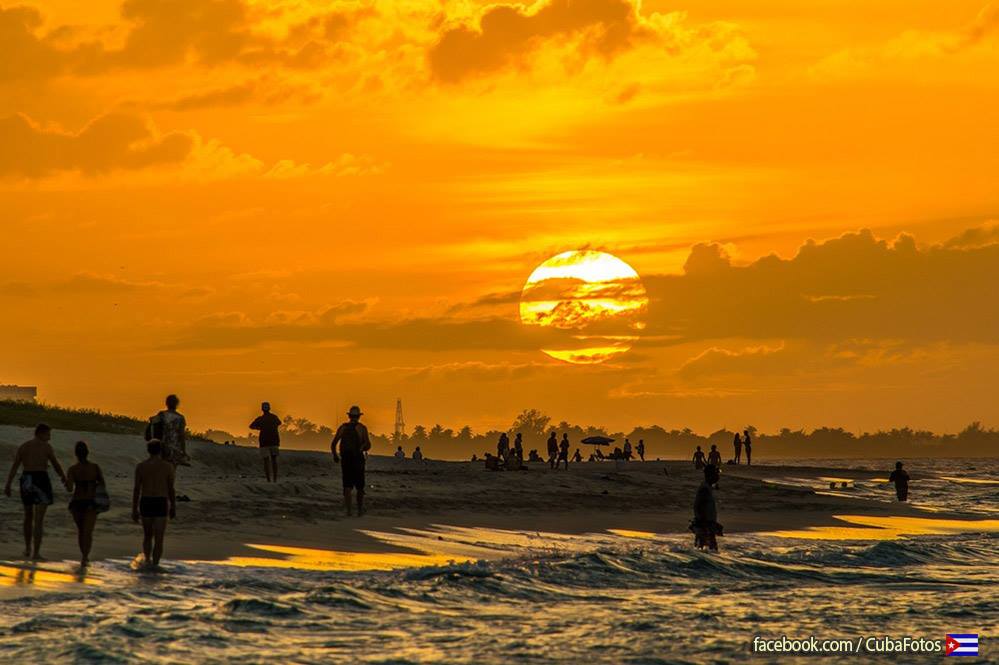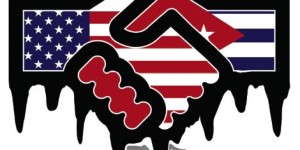– JUST DAYS TO THE OBAMA VISIT TO CUBA, THE UNITED STATES PROTEST THE DENIAL OF HUMAN RIGHTS IN THE ISLAND.
Within 20 days of the arrival of Obama to the island, the United States and Cuba publicly clashed again, this time in the United Nations Human Rights Council. Obama agenda in Cuba includes a free vote. Barack Obama puts human rights as a priority in Cuba. (Reuters)
With the withdrawal of Cuban troops from Africa and defunct Soviet Union and with it the argument that the island was their “satellite”, the issue of human rights became the main spearhead of criticism from the United States to Cuba, which remains despite the thaw initiated between the two governments in December 2014.
The Obama administration has placed the issue as one of its priorities and propagandistic has put at the center of the visit by the president to the island, the largest of the Antilles, on 21 and 22 March.
For Havana, blockade-embargo Washington which has lasted over half a century is the greatest violation of human rights against 11 million Cubans and their total lifting is its fundamental demand in the thaw. Despite the different interpretations on the subject made the two governments, their representatives met on 31 March 2015 for the first time to talk about human rights as part of their ongoing dialogue over a year ago.
However, within 20 days of arrival of Obama to the island, the United States and Cuba have publicly clashed again, this time in the United Nations Human Rights Council. The ONU.
There, the Undersecretary of State, Anthony Blinken, said Washington was “increasingly concerned” about the use of brief arrests of opponents, and called on the government of Raul Castro to “stop this tactic as a way to quell peaceful protests” .
He said that the President shall transmit to the Cubans during his visit “that are best served in an environment where people are free to choose their political parties, their leaders and express their ideas.”
What General Director of Multilateral Affairs and International Law of the Cuban Foreign Ministry, Pedro Nunez Mosquera, responded by criticizing racial discrimination, police violence almost daily mistreatment of immigrants and torture of detainees, “as in the detention center that the US government operates in the territory illegally occupied in the Cuban province of Guantanamo and in their own country “, while reiterating the need to end the blockade-embargo.
Different conceptions.
To officially announce Obama’s visit to the island, the main Cuban negotiating with the United States, Josefina Vidal, said his government is open to discuss with the United States on any subject, “including human rights.”
The Cuban government believes that the White House “makes selective use of his criticism of alleged violations of human rights” in the world, using them against nations that considered on the side of his opponents. Arguing that “never been heard criticizing the monarchy of Saudi Arabia, where women live in an alarming level of discrimination,” say officials. It also believes that, unlike the United States, Havana “addresses an indivisible human rights and comprehensive way and assumes that you have a value superior to the other.”
For Washington, the existence on the island of a single party, the state control over the media, the current electoral system and no legalization of opposition groups -to Havana “mercenaries in the service of the United States” – and his denial of active presence in the Cuban national events are elements that encourage violations of civil rights of Cubans.
El Financiro/Vivian Núñez/ AV/ Internet photos / TheCubanHistory.com
THE CUBAN HISTORY / HOLLYWOOD.
Arnoldo Varona (AV), Editor.
CUBA PHOTOS.
A POCOS DÍAS DE LA VISITA DE OBAMA A CUBA, ESTADOS UNIDOS PROTESTA LA NEGACIÓN DE DERECHOS HUMANOS EN LA ISLA.
A menos de 20 días de la llegada de Obama a la isla, Estados Unidos y Cuba volvieron a enfrentarse públicamente, esta vez en el Consejo de Derechos Humanos de las Naciones Unidas. Agenda de Obama en Cuba incluirá el voto libre. Barack Obama coloca los derechos humanos como asunto prioritario en Cuba. (Reuters)
Con la retirada de las tropas cubanas de África y desaparecida la Unión Soviética y con ella el argumento de que la isla era su “satélite”, el tema de los derechos humanos se convirtió en la principal punta de lanza de las críticas de Estados Unidos hacia Cuba, lo cual se mantiene a pesar del deshielo iniciado entre los dos gobiernos en diciembre de 2014.
La administración de Barack Obama ha colocado el asunto como una de sus prioridades y propagandísticamente lo ha puesto en el centro de la visita que realizará el mandatario a la isla , La Mayor de las Antillas, el 21 y 22 de marzo.
Para La Habana, el bloqueo-embargo de Washington -que ya dura más de medio siglo- es la mayor violación de los derechos humanos contra 11 millones de cubanos y su levantamiento total constituye su demanda fundamental en el deshielo. A pesar de las diferentes interpretaciones que sobre el tema realizan los dos gobiernos, sus representantes se reunieron el 31 de marzo del 2015 a conversar por primera vez sobre derechos humanos, como parte del diálogo que mantienen desde hace más de un año.
Sin embargo, a menos de 20 días de la llegada de Obama a la isla, Estados Unidos y Cuba volvieron a enfrentarse públicamente, esta vez en el Consejo de Derechos Humanos de las Naciones Unidas. La ONU.
Allí, el subsecretario de Estado norteamericano, Anthony Blinken, dijo que Washington está “cada vez más preocupado” por el uso de detenciones breves de opositores, y llamó al gobierno de Raúl Castro a “parar esta táctica como forma de sofocar las protestas pacíficas”.
Adelantó que el presidente estadounidense transmitirá a los cubanos durante su visita “que están mejor atendidos en un entorno donde la gente es libre de elegir a sus partidos políticos, a sus líderes y expresar sus ideas”.
Lo que el director general de Asuntos Multilaterales y del Derecho Internacional de la cancillería cubana, Pedro Núñez Mosquera, respondió criticando la discriminación racial, la violencia policial casi a diario, el maltrato a los inmigrantes y la tortura a detenidos, “como ocurre en el centro de detenciones que el gobierno de los Estados Unidos opera en el territorio ilegalmente ocupado en la provincia cubana de Guantánamo y en su propio país”, al tiempo que reiteró la necesidad de poner fin al bloqueo-embargo.
DIFERENTES CONCEPCIONES
Al anunciar oficialmente la visita de Obama a la isla, la principal negociadora cubana con Estados Unidos, Josefina Vidal, afirmó que su gobierno está abierto a conversar con Estados Unidos sobre cualquier tema, “incluyendo los derechos humanos”.
El gobierno cubano opina que la Casa Blanca “hace un uso selectivo de sus críticas a supuestas violaciones de los derechos humanos” en el mundo, utilizándolas contra las naciones a las que considera en el bando de sus opositores. Alegando que “Nunca se les ha escuchado criticar a la monarquía de Arabia Saudita, donde las mujeres viven en un nivel de discriminación alarmante”, dicen sus funcionarios. Asimismo, considera que, a diferencia de Estados Unidos, La Habana “aborda de una manera indivisible e integral los derechos humanos y no asume que uno tenga un valor superior al otro”.
Para Washington, la existencia en la isla de un partido único, el control del Estado sobre los medios de difusión, el sistema electoral vigente y la no legalización de los grupos opositores –para La Habana “mercenarios al servicio de Estados Unidos”- y su negación a la presencia activa en el acontecer nacional cubano- constituyen elementos que propician violaciones de los derechos civiles de los cubanos.
El Financiero/Vivian Núñez/AV/Internet photos/TheCubanHistory.com
THE CUBAN HISTORY/ HOLLYWOOD.
Arnoldo Varona (AV), Editor.







